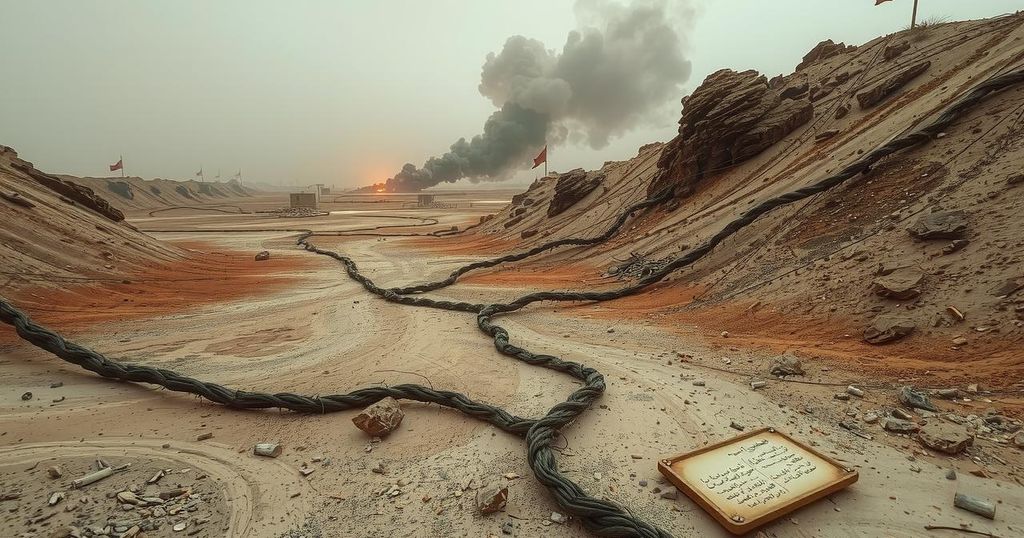Escalating violence in South Sudan raises alarm over the peace deal that ended the five-year civil war in 2018, prompting warnings from IGAD. Recent clashes, including an attack on a UN helicopter, intensify fears of war between forces supporting President Kiir and Vice President Machar. Despite government reassurances, the U.S. has taken precautionary measures, highlighting the critical need for de-escalation efforts in the country.
Recent clashes in South Sudan have prompted an alarming warning from the Intergovernmental Authority on Development (IGAD), as they indicate the nation is perilously close to rekindling conflict. These tensions reflect deteriorating conditions following a fragile peace agreement that concluded a five-year civil war in 2018. The IGAD underscored that escalating violence between forces loyal to President Salva Kiir and Vice President Riek Machar threatens the region’s stability.
In the past weeks, tensions notably intensified after an attack on a United Nations helicopter, which was attempting to evacuate soldiers from the northeastern region, leading to the deaths of both a UN crew member and a South Sudanese general. Despite assurances from President Kiir asserting that a return to war is not in the nation’s future, a significant March 4 attack in Nasir involving approximately 6,000 armed members of the White Army—a militia aligned with Machar—exhibits the increasing volatility of the situation.
The IGAD emphasized that South Sudan exists in a precarious position, caught between potential peace and resurgent conflict. They have urged all parties involved to engage in de-escalation efforts. Meanwhile, the South Sudanese government has attempted to mitigate concerns, with the foreign ministry declaring that the environment remains calm and secure, asserting the country is “open and safe for visitors, investors, and development partners.”
Nevertheless, the United States has taken precautionary steps by ordering the departure of non-emergency staff amid these developments, citing “ongoing armed conflict.” Moreover, Uganda has reportedly sent special forces to Juba, a claim that South Sudanese officials have denied. As fears of widespread violence increase, both regional and international stakeholders continue to observe the situation rigorously.
The heightened clashes in South Sudan signify renewed threats to stability, prompting the IGAD’s warning of potential conflict resurgence. The delicate balance achieved through the peace deal of 2018 is currently at risk, with calls for de-escalation becoming essential. The government’s dismissal of concerns contrasts sharply with international responses, illustrating the serious implications of the unrest in the region.
Original Source: newscentral.africa




